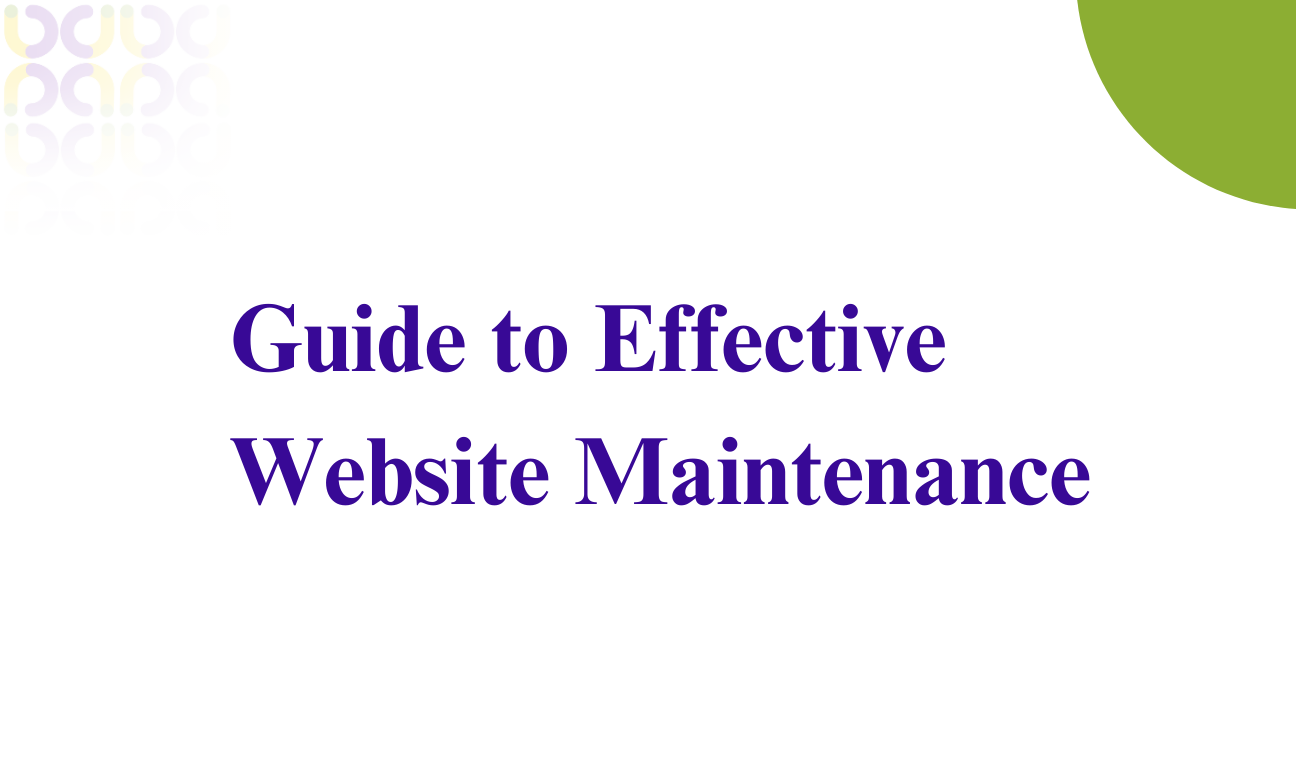↘︎ Maintaining a website is crucial for ensuring it remains functional, secure, and relevant. Regular maintenance helps prevent problems that could affect the user experience, security, and SEO rankings.
Here’s a comprehensive guide to effective website maintenance:
1. Regular Backups:
→ Protect your data by backing up your entire site weekly or daily, ensuring quick recovery in case of issues.

2. Security Updates:
→ Stay safe by regularly updating your CMS, plugins, and themes. Run security scans and maintain active SSL certificates.
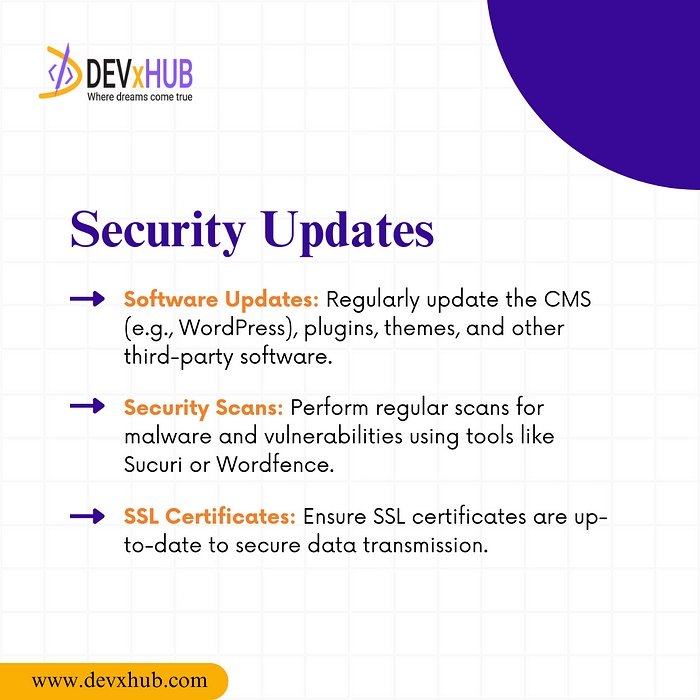
3. Content Refresh:
→ Keep content fresh and relevant. Update for SEO, fix broken links, and ensure your site meets current user needs.
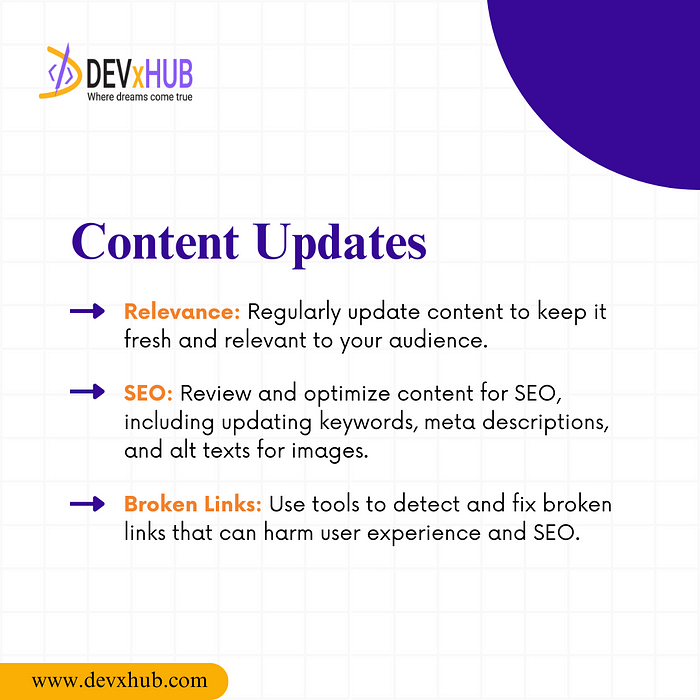
4. Performance Boost:
→ Optimize loading speeds with image compression, caching, and CDNs. Ensure responsive design for all devices.
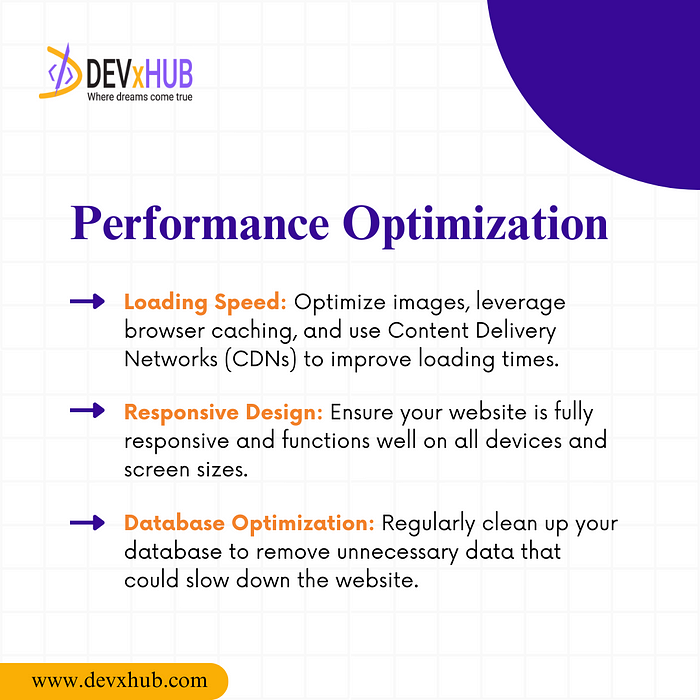
5. User Experience:
→ Enhance navigation, test all forms and CTAs, and improve accessibility to keep users engaged.

6. SEO and Analytics:
→ Monitor performance with analytics, conduct SEO audits, and keep an eye on competitors to stay ahead.

7. Legal Compliance:
→ Regularly update privacy policies, terms of service, and cookie consent to meet legal standards.
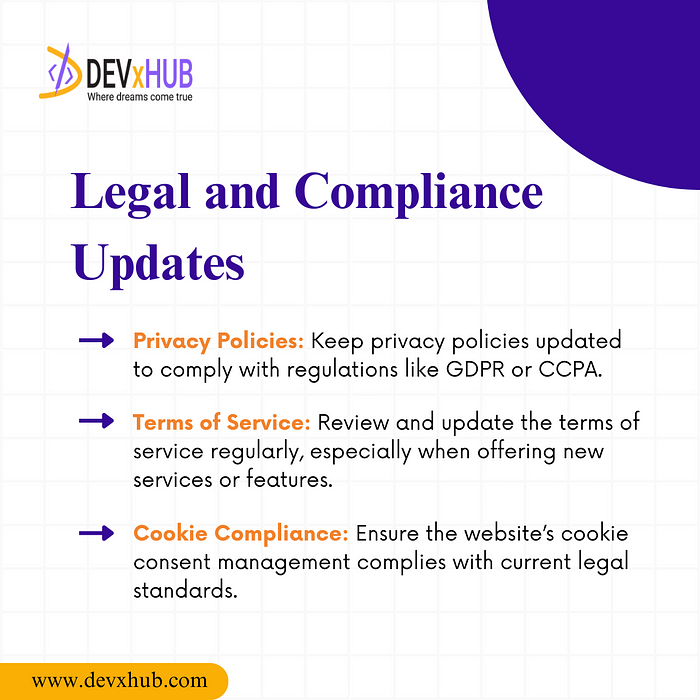
8. Testing:
→ Ensure cross-browser compatibility, check functionality, and review error logs to preempt issues.

9. Engage and Improve:
→ Collect user feedback, keep your audience informed, and ensure smooth social media integration.

10. Documentation:
→ Keep a maintenance log, document procedures, and clearly assign roles to maintain consistency.
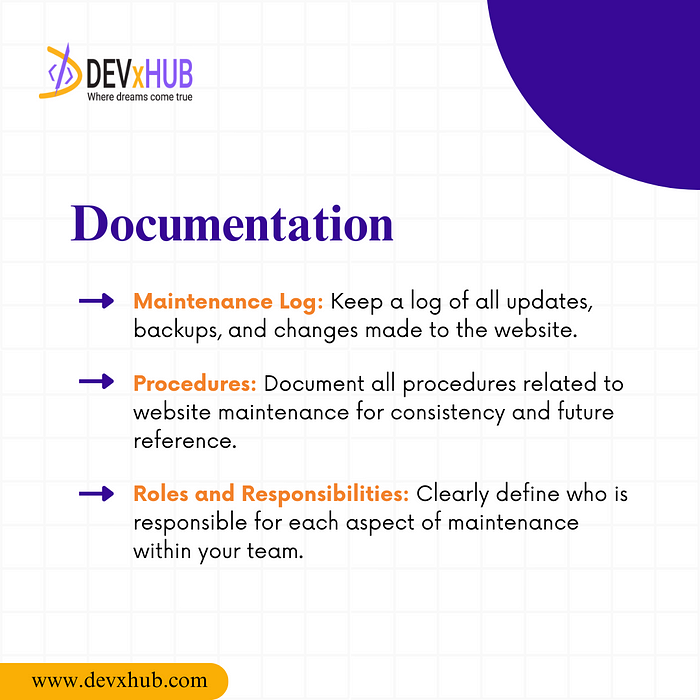
Effective website maintenance is a continuous process that requires attention to detail, regular updates, and a proactive approach to security and performance. By following these guidelines, you can ensure your website remains secure, user-friendly, and up-to-date, providing a solid foundation for your online presence.
Boost Your Software’s Performance with DEVxHUB’s Maintenance and Support Service.
Contact Us:
📧 info@devxhub.com
Call / WhatsApp: +880 1326–506464
— — — — — — — — — -
#DEVxHUB #SoftwareMaintenance #TechSupport #CyberSecurity #PerformanceOptimization #BugFixes #UserExperience #SoftwareUpdates #devxhub
5.0
Unlock your new development team today.
If you have a hard time finding the right development team or software solutions
Book a free call